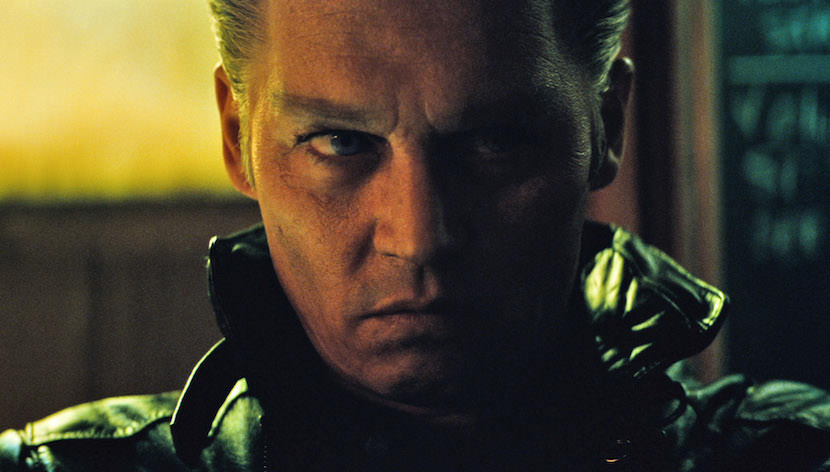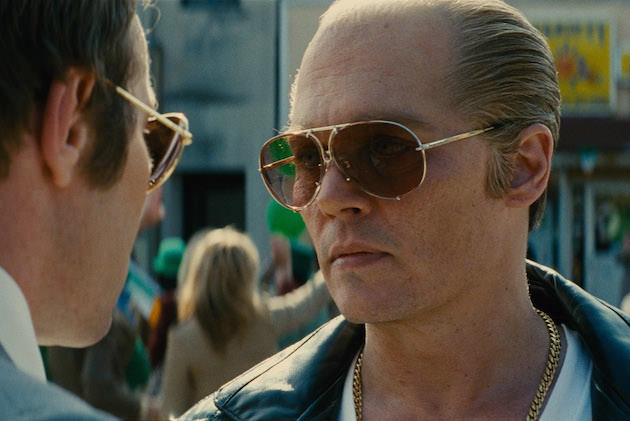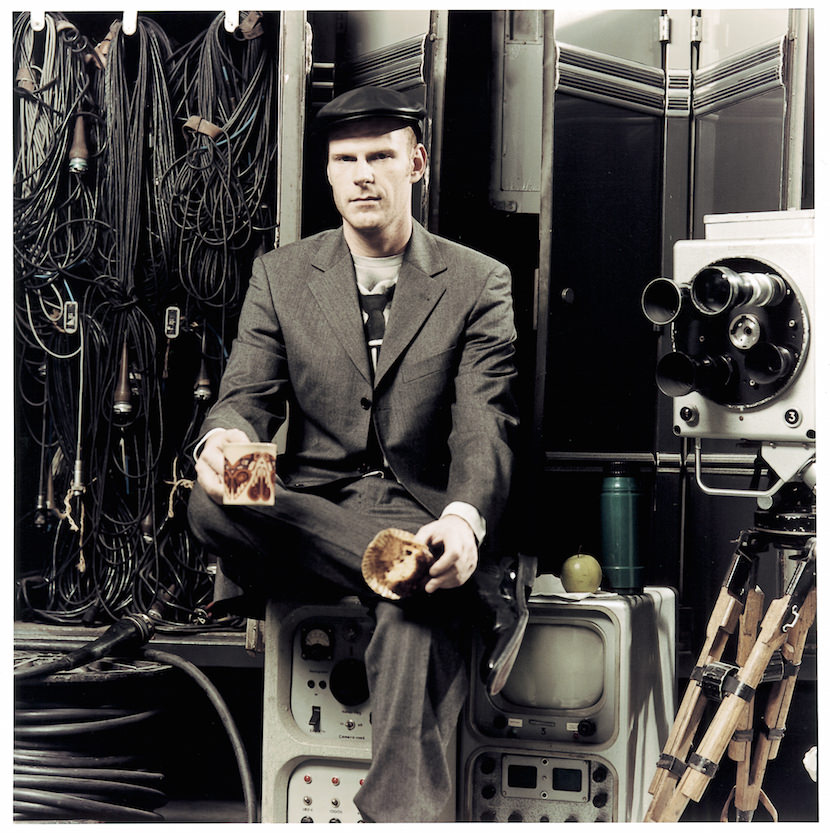Composer Tom Holkenborg (Junkie XL) on Black Mass
Dutch composer Tom Holkenborg, also known as Junkie XL, is one of the most prolific film composers working today, and one of the most impressively wide-ranging. He recently scored George Miller's wildly imaginative Mad Max: Fury Road, and will be the man behind the mixer on the highly anticipated films Deadpool and Batman v Superman: Dawn of Justice. His most recent effort was Scott Cooper's gritty, real-life crime story Black Mass. His work reflects both his classical training and his work with electronic music and metal bands. In an interview, he talked about creating a musical environment for Jimmy “Whitey” Bulger, the brutal killer played by Johnny Depp in Black Mass.
“When I saw this movie for the first time. I was actually feverish for a couple of days. I think I had the flu and some pain and I remember coming into the screening room at nine in the morning watching this whole thing through. And I came out of it with sweaty hands and shaking legs. I talked to the director and he wanted to hear what I thought. And I said, ‘Is it okay if I call you back later this afternoon?’ And so I went home and I called him back later that afternoon and said, ‘You know, he is like a cobra almost in this movie. You never know when he’s going to strike. It’s his voice and his appearance and the suffocating scenes where he is completely in control and you just see the life being sucked out of the other characters in the scene.”

As terrifying as Bulger is in the film, “the most important thing was to make sure we look at him as a human being first. A human being that is a criminal, not a criminal that happens to be a human being, which is quite a different approach.” Almost as important in the film is John Connolly, played by Joel Edgerton, the FBI agent who grew up with Bulger and gave him protection and information. Holkenborg found a way to use the music to echo the parallels between the men and the shifts of power in their connection.

“There are two very distinct, separate themes. But what I did was swap the instrumentation back and forth so the main theme for Whitey is played on the piano but it’s also played on the cello and for Connolly, it’s primarily played on the cello but also on the piano. And the reason why I did that is these characters grew up together so I needed to create a natural environment, so that the instrumentation and the themes were very much correlated to each other when it comes to coloring, not to notes. The theme for Connolly and the theme for Whitey basically also trickle down to all the characters that are connected to them. So John Connolly’s theme trickles down to the FBI and so Whitey’s theme trickles down to the Winter Hill Gang and Fleming and some of the other characters that he works with on a daily basis.”
He was very specific about the sound design. In the early part of the film, “I used acoustic instruments like strings and piano to do the sounds. But I instructed them very clearly that when they play, they play it with no vibrato. So you get this really cold quality. Then the strings really start playing with vibrato basically from the hospital scene on to the end to underscore that emotion.” The music becomes more emotional as Bulger and Connelly each become more isolated.
The movie covers 1975-2011, and Holkenborg relied on a few songs played in bars or on the radio to indicate the time period. But “I thought it was way more important for the score to really stick with characters and character development.”

To try to use the score to indicate the passage of time would “draw too much attention to itself, whereas what the score is supposed to do is to really paint and follow these characters and let it develop musically. So it starts to make more sense for the audience in showing what is happening and how this underlying theme of loyalty and brotherhood comes into play at the very end, that’s where Connolly is the only guy that is facing jail for forty years because he will not give up that principle and all the other guys have given up on him.”
A turning point in the film is the wrenching death of Bulger’s young son from Reye’s disease. “That was a difficult scene and we worked on that a lot. There are so many things at play there. That’s the moment where we can warm up a little bit to him because he is losing his son. But then it gets so dark again when he basically abruptly changes into this completely different person, even to his girlfriend. And she leaves him like right there on the spot. And then you see that sadness turning into extreme anger and as he walks out the anger comes with him and it goes exactly to almost complete silence, and then we have that night shot of the city, and then it just echoes back this emotion where he becomes really, really out there. And so that’s why it’s a pivotal point because from that point on he starts really taking this different road, further and further away from the path.” He used silence again in one of the tensest moments in the film, a conversation with Connelly and Connelly’s boss around a kitchen table.

“I didn’t think we should have anything there. So during that whole conversation it should just be the silence of the kitchen table and then when that whole scene gets wrapped up he takes up his glass and you see the faces of the two men. At that point the music starts creeping in, which brings us upstairs. I try to play super, super minimal and the music really kicks in when Whitey is leaving and when we really feel that emotion come from Marian.”
Cooper’s advice to Holkenborg was “follow the drama and make sure that you score the characters as human beings that happen to be criminals and not the other way around. The picture will demand of you what you need to do.” He took the advice to heart, and gave the film a pulse of emotion that lies beneath the action on screen.


